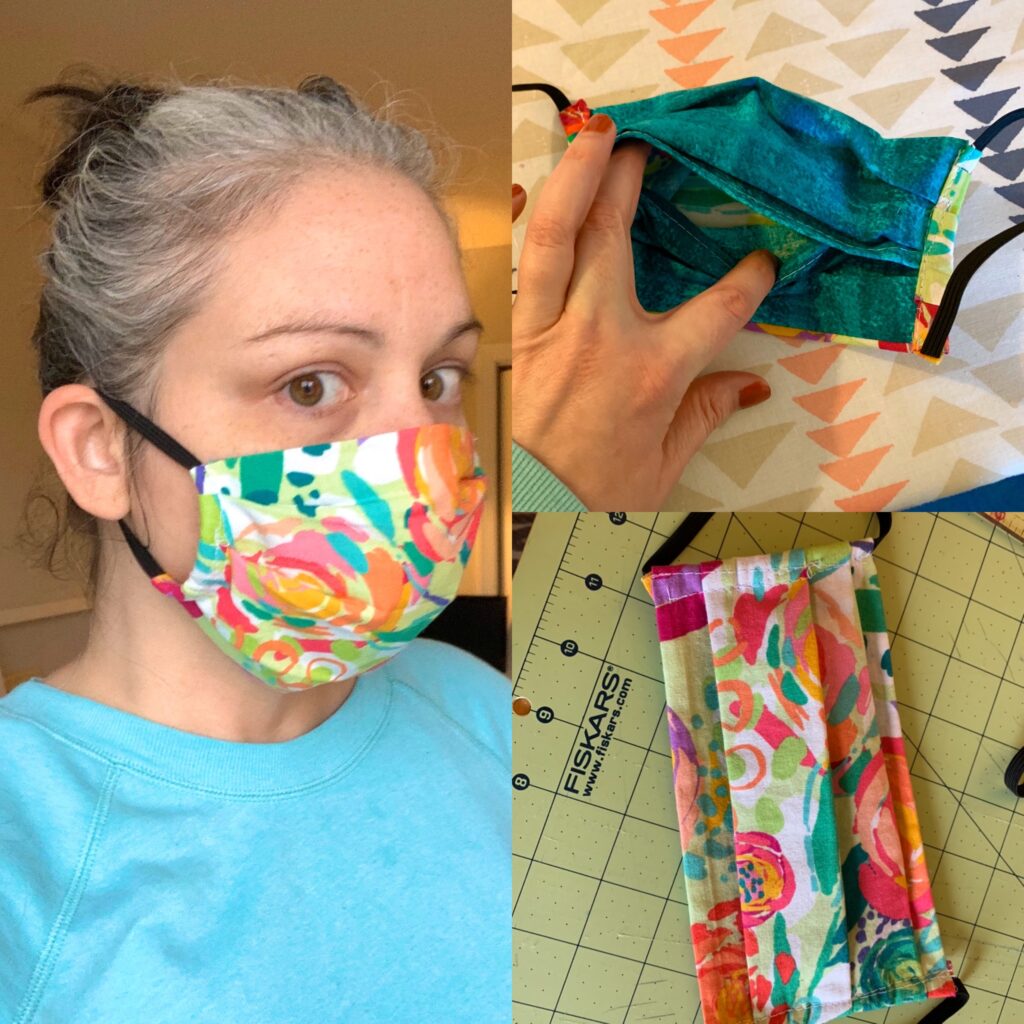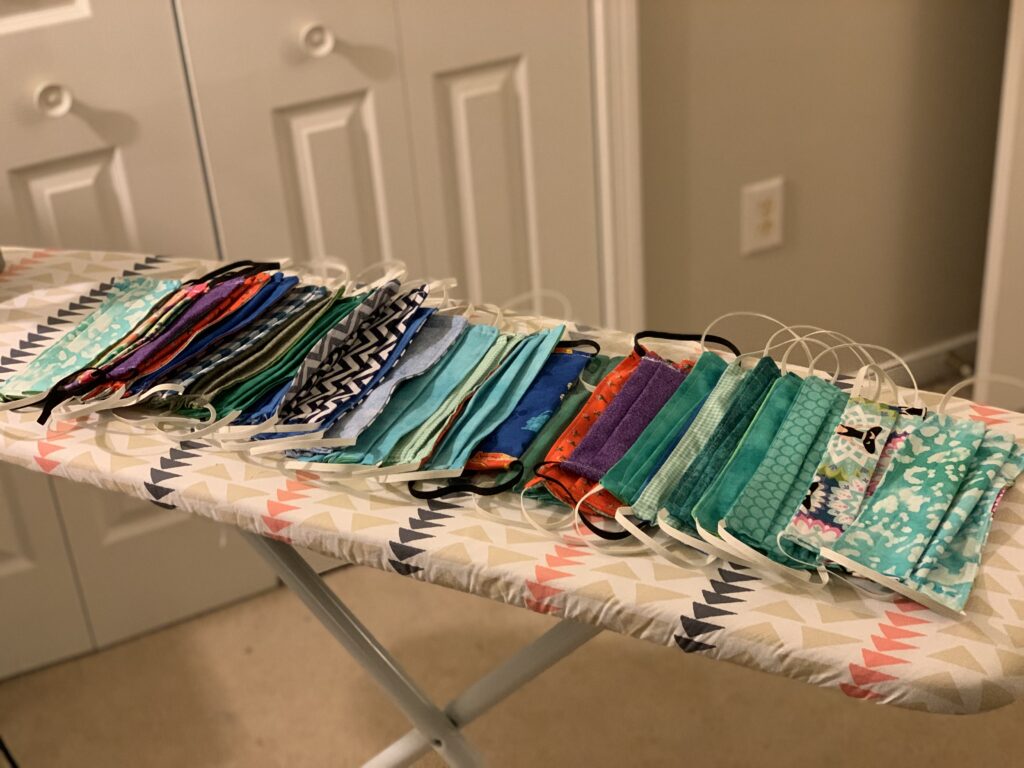Cervical cancer survivor, graphic designer, frequent journal-er, and now published author Andrea Bonhiver has been experiencing “quarantine flashbacks” amid the current COVID-19 pandemic:
“I spent March 7 to April 22, 2019 basically quarantined in my apartment after surgery for cervical cancer. Here I go again in 2020! Who would’ve thought?”
The feelings of trauma that come with having cervical cancer are VERY similar to what many people are experiencing during this pandemic, Andrea reminds us. “I lived with these feelings of anxiety and uncertainty on a pretty constant basis for 2 years:
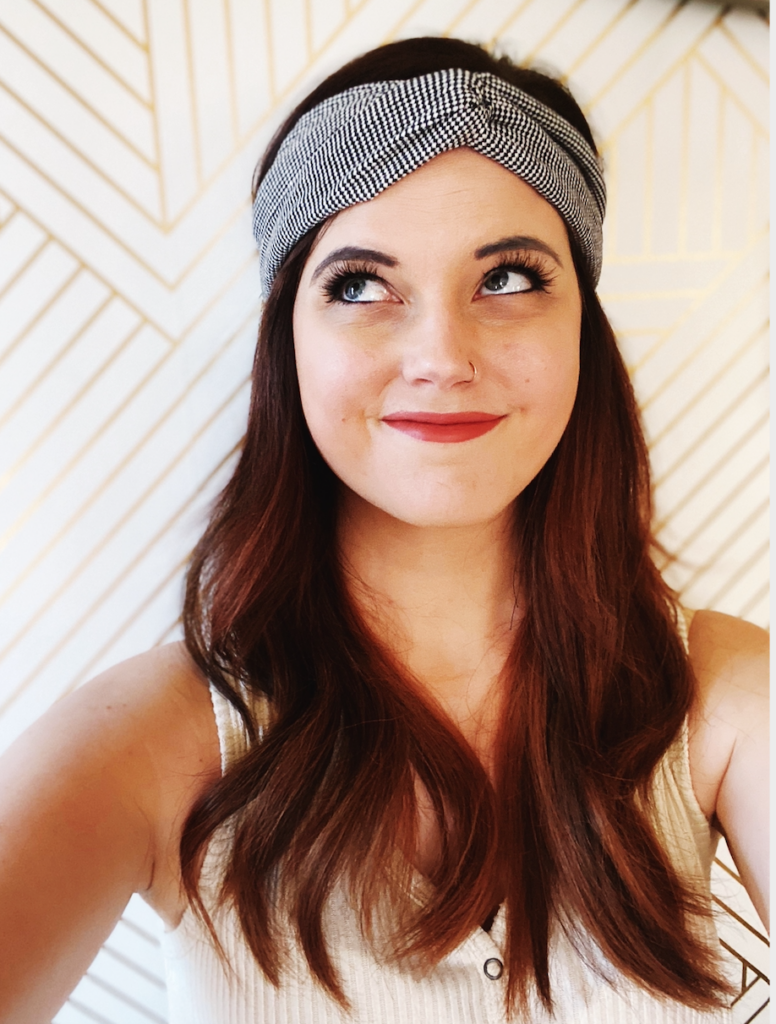
✓ A scary diagnosis.
✓ Living with something that is potentially life-threatening.
✓ Not being able to do the things you’d normally do as freely as you’d like.
✓ Fear and uncertainty about EVERYTHING.
✓ Questioning everything in my body that feels a little bit ‘off’ and constantly wondering “is that normal?” (As in: My breathing feels tight. Is that a symptom? Is the cancer spreading? Do I have COVID-19?!)”
Amid the physical isolation that many are living through to protect themselves from COVID-19, Andrea doesn’t want anybody – especially not cervical cancer survivors – to feel alone. Certainly not the type of alone that she felt when she received her cervical cancer diagnosis. She’d gone looking for hope and information “in the blue light of the internet” but found mostly “scholarly articles, or scary ones about the invasive and painful treatments I might need, or about survival and recurrence rates. Cold hard facts but very few real-life stories.”
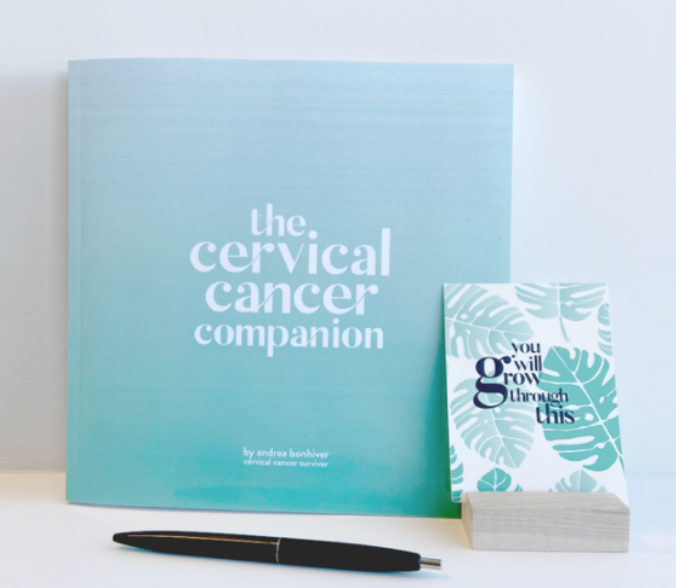
So she wrote her own. Not just as a Cervivor story for our website, but a book: The Cervical Cancer Companion – written to help others “process the trauma of cancer as you experience it.”
Now, Andrea is looking back on her post-hysterectomy, post-surgery isolation to share tips on how to get through the anxiety and isolation many are feeling with the current COVID-19 quarantine.
Andrea’s quarantine tips for our Cervivor community:
1. Create a “What If” journal. When you feel overwhelmed by the uncertainty and fear, sit down and just let it all out. Bullet out a list of everything you’re afraid of and worried about. Irrational or fully logical. Let it all go. Then go back and try to come up with a statement for each one. “If this happens, then_____________.” You might find that the outcome of each worst fear is not as catastrophic as you have imagined in your mind. And if it is? You *will* make it through.
2. If you need help? ASK FOR IT. I am not at all surprised that as a society we have risen up to support and encourage one another. I saw this first-hand throughout my cancer journey and it was a real window into just how GOOD and SELFLESS people can be. People want to help because they’ve been helped by others, too. Don’t be afraid. Asking for help isn’t a sign of weakness, it takes guts and if that’s not strong, I don’t know what is.
3. Know that you will grow through this. There are always things to be learned. Areas of our hearts and character will deepen and be strengthened through this. Getting stronger and becoming better people is never not painful, but is always a positive thing.
4. Remember that psychological and emotional trauma takes a toll on cognition. EVERYTHING HAS CHANGED. We should not expect our memories to work as well as they did before, nor should we expect ourselves to be able to recall all of the information we had at front of mind before. Go easy on yourself. Lower your expectations for yourself. Do your best.
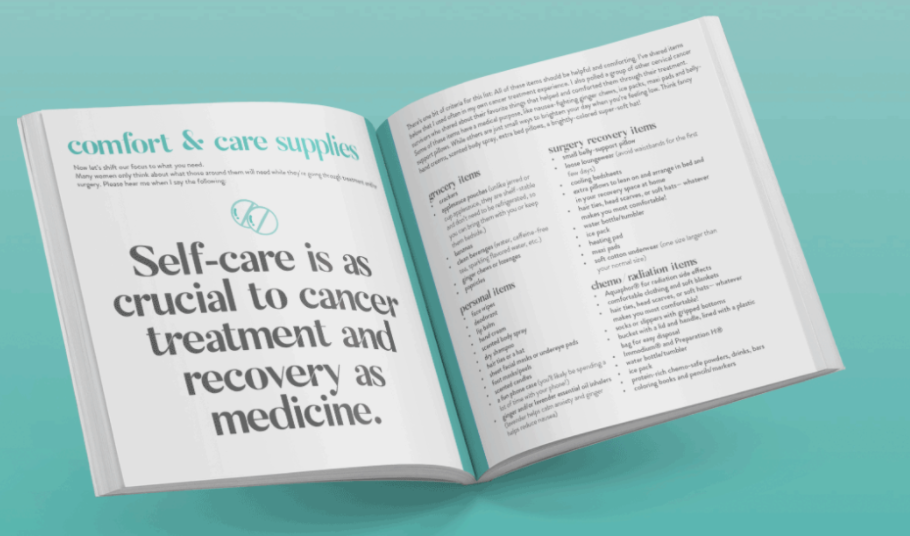
5. Tend to your emotional health. Check in with yourself. Ask yourself what you need. Write. Pray. Cry. Laugh with friends over Facetime. Grieve if you need to. Rejoice if you want to. Just don’t act like nothing has happened.
6. Manage “The Wait.” I created a few pillars of self-care during “The Wait.” When you have cancer, “The Wait” is the time between your test/treatment/surgery and receiving the results. It’s long, it’s miserable, it’s anxiety-inducing. So we need distractions. For this 2020 Pandemic, the shelter in place orders are our “Wait.” Here are those pillars that I think can get us through:
- Support: Who can you call/visit with? Make a list.
- Counseling: There are counselors all over the country doing Facetime sessions, if you are struggling. There are also counseling and meditation apps that are helpful.
- Movies/TV: Don’t shame yourself for seeking a mental escape. It’s necessary to give your brain a break in times like this. I personally found it comforting to watch shows set in other time periods, or movies I enjoyed from my childhood.
- Books: Many libraries have an app called Libby where you can check out ebooks and audiobooks if you run out of books in your home.
- Music: Make a playlist of songs you find uplifting, soothing, or calming. Go to it when you feel overwhelmed.
- Move Your Body: Many of us can’t do this during or while recovering from treatment, but if you can, go on walks! Do some gentle yoga. Find ways to bring motion to your system and shake off the anxiety.
7. Grief and Gratefulness: These themes will carry us through this tragic season in our world. Make a list of what you’re grieving and another list of what you’re grateful for. Keep adding to it every day. Eventually, I believe our gratefulness will outweigh our grief. ONE DAY.
How are you surviving quarantine? And if you are in a place that isn’t under “stay at home” orders, how are you managing any COVID-19 related anxiety? Do you have a unique experience with it as a result of your experiences with cervical cancer diagnosis and treatment? If so, please share with Cervivor via the comments below or email [email protected]
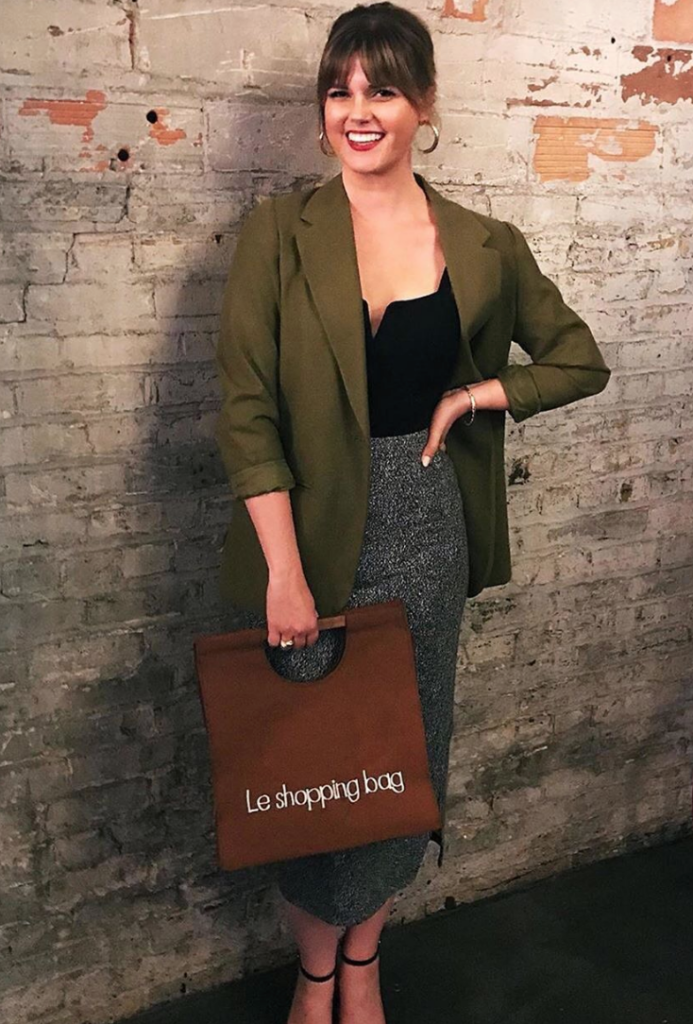
Andrea Bonhiver lives in Minneapolis with her husband and dog. Diagnosed with adenocarcinoma in situ at age 33, Andrea journaled throughout her cervical cancer diagnosis and radical hysterectomy as a way to process her emotions and release her “anger and heartbreak onto a bright white page.” She decided to share her story and experiences as a book to help others going through cervical cancer know that they are not alone. Her book, The Cervical Cancer Companion, includes personal journal entries through each stage of her experience, prompts to help readers process and record their own journey; practical tools like caregiver calendars, medication trackers and shopping lists; and mantras to keep your mind centered.
Read Andrea’s Cervivor story
